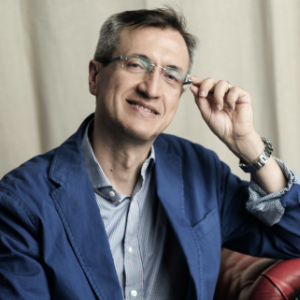.png)
19 Nov, 2020
Written by

Stefano Erzegovesi
A psychiatrist and nutritionist, he lives and works in Milan. He is director of the Center for Eating Disorders of the San Raffaele Hospital in Milan and deals with scientific dissemination in the field of healthy eating; healthy for the body, for the mind and for the environment in which we live. He loves to read about everything, aimlessly ride a motorcycle and stay in the kitchen with his children to make vegetables appetizing. His dream, which is gradually coming true, is to take care of people in a large kitchen; because, by eating well, we can prevent a good part of the chronic diseases of our time and, while we are at it, live together with others in a more peaceful way.
Visit the author's page.png?width=800&name=Students_in_kitchen_time_SARS-CoV-2_San_Raffaele_University%20(2).png)
.jpg?width=800&name=Students_in_kitchen_time_SARS-CoV-2_San_Raffaele_University%20(1).jpg)
.jpg?width=800&name=Students_in_kitchen_time_SARS-CoV-2_San_Raffaele_University%20(4).jpg)
.jpg?width=800&name=Students_in_kitchen_time_SARS-CoV-2_San_Raffaele_University%20(5).jpg)
.jpg?width=800&name=Students_in_kitchen_time_SARS-CoV-2_San_Raffaele_University%20(6).jpg)
.png?width=800&name=Students_in_kitchen_time_SARS-CoV-2_San_Raffaele_University%20(3).png)
.jpg?width=800&name=Students_in_kitchen_time_SARS-CoV-2_San_Raffaele_University%20(3).jpg)